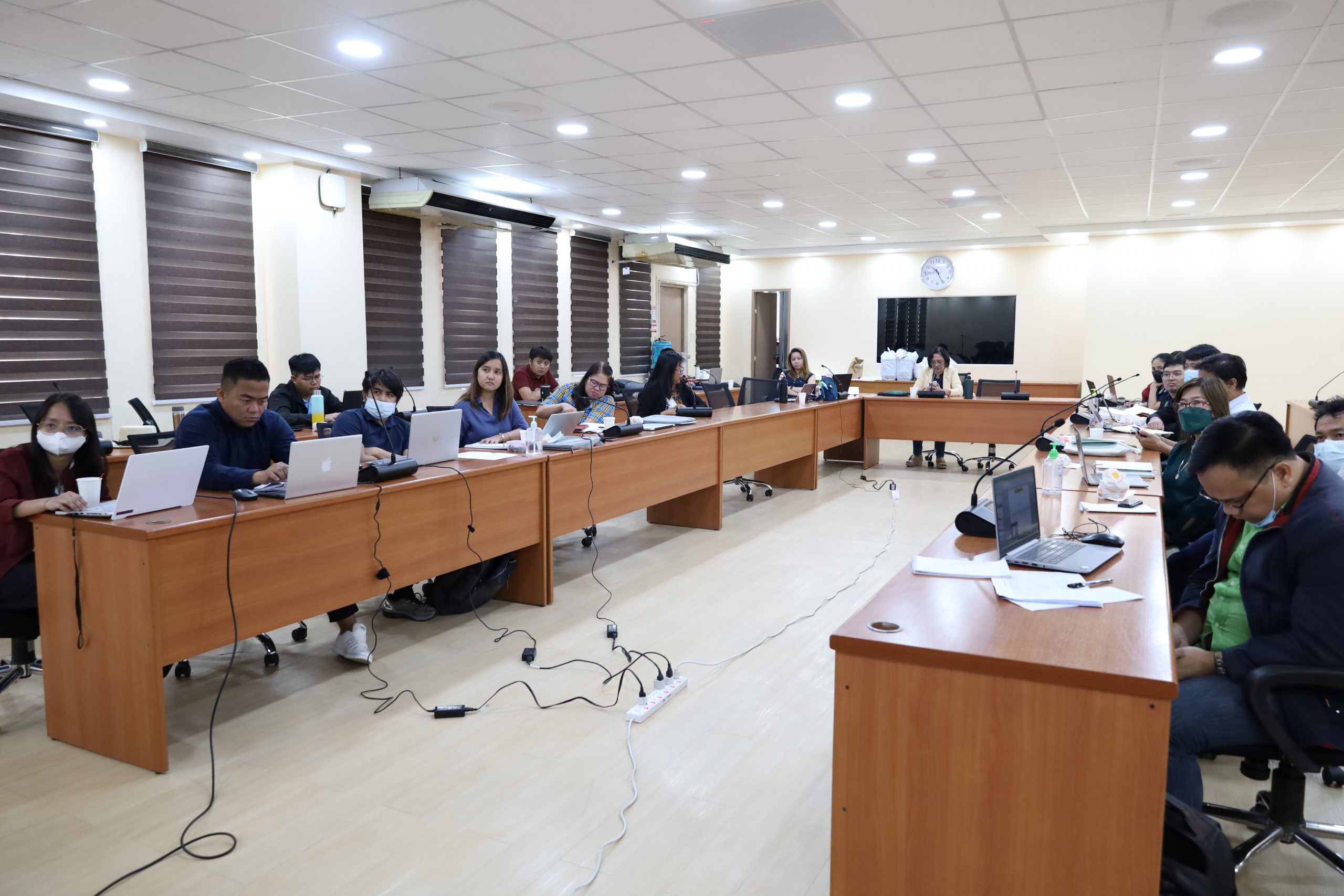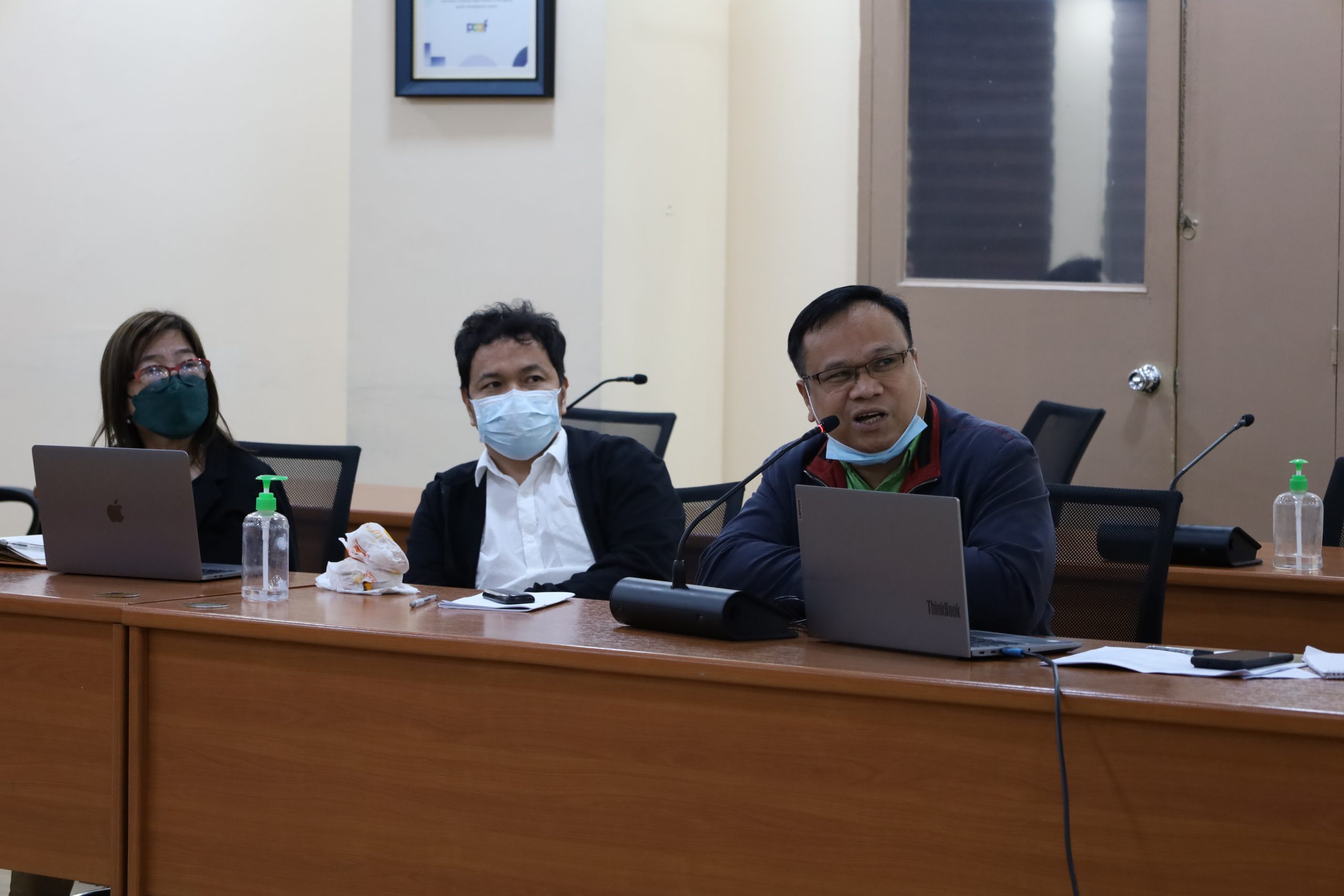
Since its ratification in 2013, the implementation of Republic Act No. 10601, otherwise known as the Agricultural and Fisheries Mechanization (AFMech) Law, has been the priority of the Department of Agriculture (DA) and its bureaus, attached agencies, corporations, and regional field offices (RFOs).
The Law promotes the development and adoption of modern, appropriate, cost-effective and environmentally-safe A/F machinery and equipment to enhance farm productivity and efficiency towards DA’s ultimate goals of achieving food security and safety, and boosting farmers’ income.
As the policy-making arm and participatory hub of the DA, the Philippine Council for Agriculture and Fisheries (PCAF) supports this endeavor by conducting national consultations, developing policy studies, and participating in initiatives related to AFMech.

Last April 18, 2023, PCAF organized the Workshop on the Determination of the Level of Mechanization (LoM) in Rice, in coordination with the Bureau of Agricultural and Fisheries Engineering (BAFE).
The workshop sought to commence the harmonization of the identified LoM protocols and start the computation of the LoM in rice, which can provide a reliable basis for the government in creating programs and projects towards accelerating AFMech.
Three organizations presented their respective methods for computing LoM, namely the Philippine Rice Research Institute (PhilRice), the Philippine Center for Postharvest Development and Mechanization (PHilMech), and the University of the Philippines Los Baños (UPLB).
Upon evaluation, the three organizations decided to consider all three power sources—human, human-animal, and human-machine—in calculating the LoM. Meanwhile, they agreed to harmonize the data sources and the nomenclatures in succeeding meetings.

On April 19, 2023, PCAF also held a meeting with the UPLB-College of Engineering and Agro-Industrial Technology (CEAT) to discuss the Policy Study for the Establishment of a Nationwide Unified Policy for the Selection System of A/F Machinery (SSAFM) for the Distribution Program of the Government.
The goal of the project is to have a harmonized evaluation and selection system that will ensure good quality and high-performance agriculture and fisheries machinery (AFM) in the market. The results of the project can also serve as a guide for planners and policymakers in the efficient distribution and utilization of AFM, as part of the government’s AFMech Program.
Led by its Dean, Dr. Rossana Marie Amongo, the Project Team presented to the PCAF Officials the results of the study for feedback and further clarifications.
“AMTEC [ULB-Agricultural Machinery Testing and Evaluation Center] testing is limited to the samples of AFM being tested, and the problems may arise on the rest of the machinery that will be distributed,” Dr. Amongo explained. “To help us manage this, we need to harmonize the evaluation and selection scheme,” she added.
Through field survey with farmers, AF machinery suppliers, and DA-Regional Field Offices (RFOs), the UPLB-CEAT Team reported that among the three factors considered in selecting the machinery to be distributed, namely—the performance-based factors, manufacturer-based factors, and the end-user-based factors, the end-user factor bears the highest weight.
“Currently, AMTEC tests machinery based solely on the technical specifications, but the problem is, it does not measure the acceptance factor of the stakeholders to whom the machineries are being distributed,” she furthered.
The project, which started last May 2022, is funded by the PCAF and implemented by the UPLB-CEAT, in collaboration with the UPLB-Agricultural Machinery Testing and Evaluation Center and the DA Regional Field Offices.
PCAF is also currently funding the “Rapid Assessment of Republic Act No. 10601, Otherwise Known as the AFMech Law” Program, which is also being implemented by the UPLB-CEAT. | JCL











